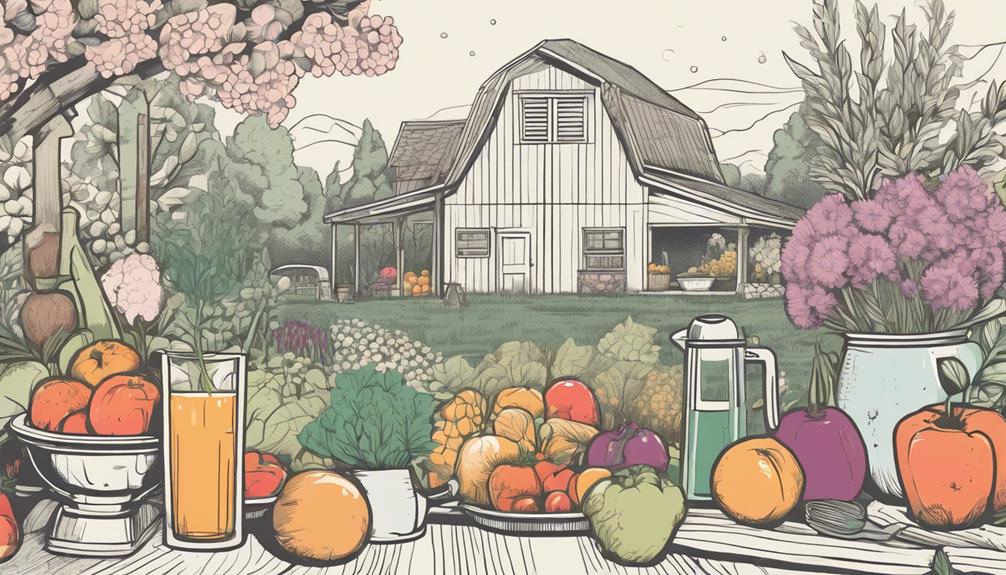See All: Backyard Farming
Free Backyard Farming Webinar…
You can grow food! This free webinar is for people who want the fastest and easiest ways to produce healthy and delicious vegetables, eggs, and meat. Because you know that growing your own food is like printing your own money…
Click Here To Watch The Free Webinar Now!
“Hi there! I’ve recently got really into juicing and want to start growing my own produce in my backyard here in Brisbane. I want to make sure I pick the best crops for juicing. Which fruits and vegetables should I consider, and how can I ensure they thrive in my backyard garden?” Thanks, Benjamin, Brisbane, Australia.
How Do I Pick Crops For Juicing?
Hey Benjamin! That’s an excellent question and a wonderful venture you’re embarking on. Juicing is a fantastic way to get all those nutrients, and growing your own produce can make it even better. Let’s talk about what crops are best for juicing and how to cultivate them in your backyard garden.
Why Grow Your Own Juicing Crops?
Growing your own juicing crops ensures freshness and nutrient density. Produce loses nutrients as it sits, so picking and juicing straight from your backyard can give you the highest possible nutritional value. Moreover, you can control the environment, avoiding pesticides and ensuring organic practices.
Choosing the Right Crops
Different fruits and vegetables bring unique flavors and health benefits to your juice. Here are some great options to consider:
Fruits
- Oranges: Perfect for an energy boost, oranges are rich in vitamin C. They thrive in sunny locations, which Brisbane has plenty of.
- Lemons: Great for a zesty kick and loaded with antioxidants, lemons are also good for detox juices.
- Apples: Adding sweetness and fiber, apples can be grown in versatile climate conditions. Opt for varieties like Fuji or Granny Smith.
- Blueberries: Full of antioxidants, these are perfect for a nutritious juice. They require acidic soil, so consider planting them in pots if your backyard soil isn’t acidic enough.
Vegetables
- Kale: Known as a superfood, kale is loaded with vitamins and minerals. It’s hardy and grows well in different climates.
- Carrots: Great for adding sweetness while being rich in beta-carotene and other nutrients.
- Beets: These provide a rich color and are excellent for heart health. Beets grow well in Brisbane’s mild winters.
- Cucumbers: Perfect for hydration and adding a refreshing taste, cucumbers grow well in warmer climates.
Preparing Your Garden
Once you’ve chosen your crops, it’s time to prepare your backyard garden. Here’s how:
Soil Preparation
Good soil is fundamental for a successful crop yield. Aim for loamy soil with good drainage. Testing your soil pH will help you tailor it to the specific needs of each crop:
- Acidic Soil: Ideal for blueberries and radishes. Acidify soil using organic matter like pine needles.
- Neutral Soil: Suited for most vegetables and fruits. Amend with compost and manure to enrich it.
- Alkaline Soil: Beneficial for asparagus and cabbage. Lime can be added to increase soil pH.
Sunlight and Watering
Research the sunlight needs of your chosen crops. Most fruiting plants need at least 6-8 hours of sunlight daily:
- Full Sun: Oranges, lemons, and tomatoes.
- Partial Shade: Kale, spinach, and lettuce.
Implement a consistent watering schedule, especially during the hotter months. Drip irrigation systems can be a great investment for even and efficient watering.
Seasonal Planning
Understanding Brisbane’s climate will help you optimize your growing schedule:
- Spring: Start planting tomatoes, peppers, and cucumbers.
- Summer: Focus on harvesting and planting leafy greens like spinach and lettuce to handle the heat.
- Fall: Plant root crops like carrots and beets.
- Winter: Citrus usually performs well during mild Brisbane winters.
Companion Planting
Benjamin, mixing certain plants can be beneficial for pest control and improving growth:
For example:
- Basil and Tomatoes: Basil repels flies and mosquitoes while enhancing the flavor of tomatoes.
- Carrots and Onions: They deter each other’s pests, like carrot flies and onion flies.
Organic Practices
Adopting organic gardening practices will lead to healthier produce:
- Compost: Enriches soil naturally and improves its structure.
- Natural Predators: Introduce beneficial insects like ladybugs to control aphid populations.
- Crop Rotation: Prevents soil depletion and reduces pest and disease cycles.
Harvesting and Storage
Knowing when to harvest is crucial for juicing:
- Oranges and Lemons: Pick when they are fully colored and slightly soft to the touch.
- Kale: Harvest leaves when they are tender but before they start wilting.
- Carrots: Harvest when they reach desired size, typically about 2-3 months after planting.
Store harvested produce in a cool, dark place to extend freshness. Root vegetables like carrots can be stored in sand or soil for longer preservation.
Tips for Juicing
Now that you’ve got your fresh produce, here are some tips to maximize your juicing experience:
- Combination: Mix fruits and vegetables for a balanced flavor. Apples and carrots pair well, as do kale and oranges.
- Pulp Usage: Don’t waste the pulp! It can be used in soups, baking, or composted to enrich your garden soil.
- Juicer Type: Centrifugal juicers are great for soft fruits, while masticating juicers handle leafy greens better and extract more juice.
Final Thoughts…
Benjamin, embarking on this juicing journey with crops from your own backyard is truly rewarding. From choosing the right produce to cultivating and eventually enjoying fresh juices, every step contributes uniquely to your health and well-being. Thanks for your question, and happy gardening!
Return To: Backyard Farming
Free Backyard Farming Webinar…
Marjory Wildcraft: For 20+ years, Marjory has been a leader in survival & preparedness and wants to show you how to grow food in your backyard farm. This free webinar is for people who want the fastest and easiest ways to produce healthy and delicious vegetables, eggs, and meat. Because you know that growing your own food is like printing your own money…

